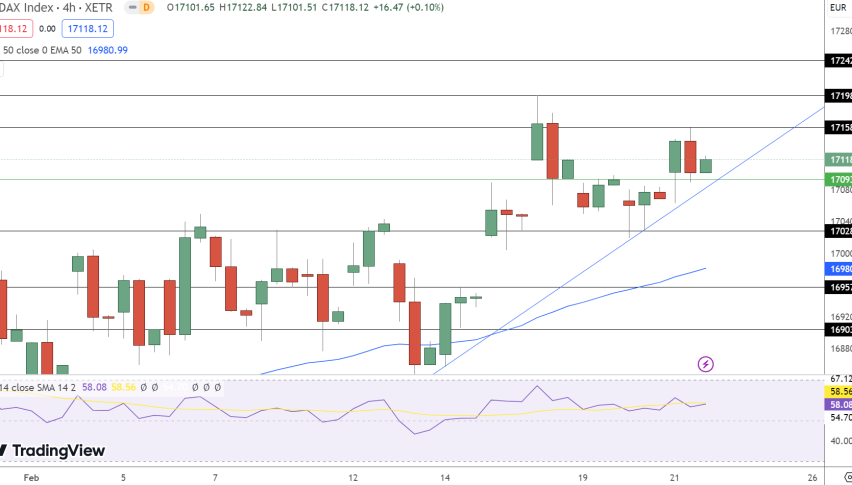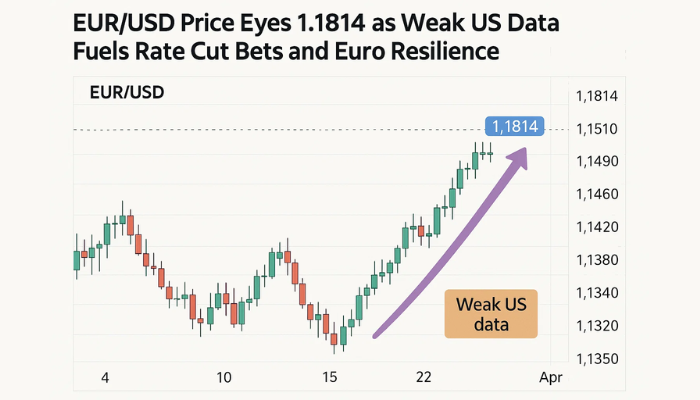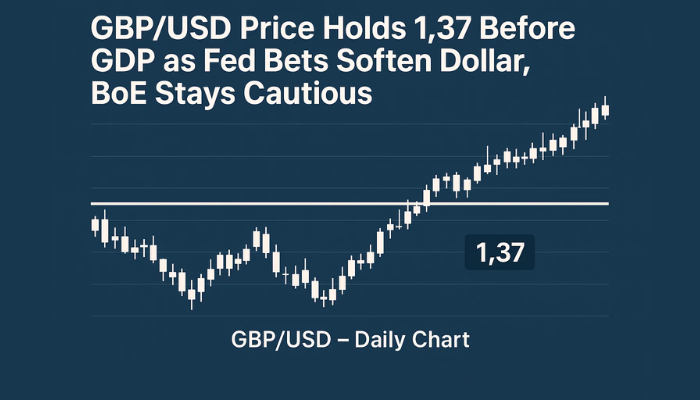DAX Stalls at 17,000 Amid Global Economic Fears and Geopolitical Tensions
The DAX index unable to stop its previous bearish performance and still showing downbeat performance, settling at the 17,090 level.

The DAX index unable to stop its previous bearish performance and still showing downbeat performance, settling at the 17,090 level. This shows ongoing negative sentiment and selling pressure in the market.

However, the reason for its sluggish performance can be associated with multiple factors, including concerns about the Chinese economy.
Notably, the ongoing worries about the Chinese economy, as evidenced by the People’s Bank of China’s decision to lower the 5-year loan prime rate, have played a role in undermining the DAX index due to the interconnectedness of the global economy.
As we all know China is a major player in the world economy, and developments in its economic indicators and policies can have major effects on broader markets.
Furthermore, the declines in the DAX index were further bolstered by the unexpected drop in the US CB Leading Economic Index in January.
This unexpected decline negatively impacted investor confidence, potentially leading to further decreases in the DAX.
Moreover, negotiated wage growth figures for the Eurozone have raised expectations of an ECB rate cut in April, which also affect DAX index.
Impact of Eurozone Data and ECB Commentary on DAX Performance
On the European front, the upcoming data releases and ECB commentary are set to impact DAX performance. It is worth noting that Eurozone consumer confidence numbers are coming, with economists forecasting a improvement in the Consumer Confidence Index for February.
This is why, Investors are awaiting any signals from ECB officials about future monetary policy decisions, which typically impact market sentiment.
Meanwhile, ECB Executive Board members’ speeches are also important as they may provide more understanding into the central bank’s stance on interest rates and stimulus measures.
Therefore, the outcome of these events will shape investor perceptions of economic stability and growth prospects in the Eurozone, which will likely impact DAX’s performance.
Geopolitical Tensions and DAX Trends: Impact of US-Russia and Israel-Gaza Conflicts
On the geopolitical front, the ongoing tensions between the US and Russia, as well as the Israel-Gaza conflict, have also impacted DAX performance. However, the news about Russia possibly making a weapon in space to destroy satellites has made investors worry more about global safety.
This is making the stock market more unstable and causing people to be more careful with their investments. Meanwhile, the long lasting war in the Gaza Strip is making the world more uncertain. This conflict could cause problems for stability in the region and make investors nervous.
Thus, these geopolitical developments have injected uncertainty into financial markets, impacting risk appetite and contributing to the DAX’s downward trajectory as investors adopt a cautious approach amid geopolitical turmoil.
Impact of US Economic Data and Federal Reserve Policy on DAX Performance
On the US front, economic data releases and Federal Reserve policy decisions significantly impact DAX performance. FOMC member speeches and the release of Fed Meeting Minutes offer understanding into the central bank’s stance on interest rates and monetary policy normalization.
However the previously released US inflation numbers and expectations of future rate hikes or cuts have impacted the global markets, including the DAX.
DAX Price Forecast: Technical Analysis
The DAX index modestly ascends to 17,118.12, marking a 0.29% rise within the recent 4-hour trading window. The index now teeters around the pivot point of 17,093.13, with immediate resistance anticipated at 17,158.87.
Should bullish momentum persist, the next hurdles are set at 17,198.32 and 17,242.64.

On the flip side, support forms at 17,028.40, with further cushions at 16,957.60 and 16,903.99. The RSI at 58 suggests growing bullish sentiment, while the upward trendline and a 50-day EMA of 16,980.99 bolster the case for continued buying pressure.
Thus, maintaining levels above 17,095 could signify sustained bullishness for the DAX.
- Check out our free forex signals
- Follow the top economic events on FX Leaders economic calendar
- Trade better, discover more Forex Trading Strategies
- Open a FREE Trading Account


